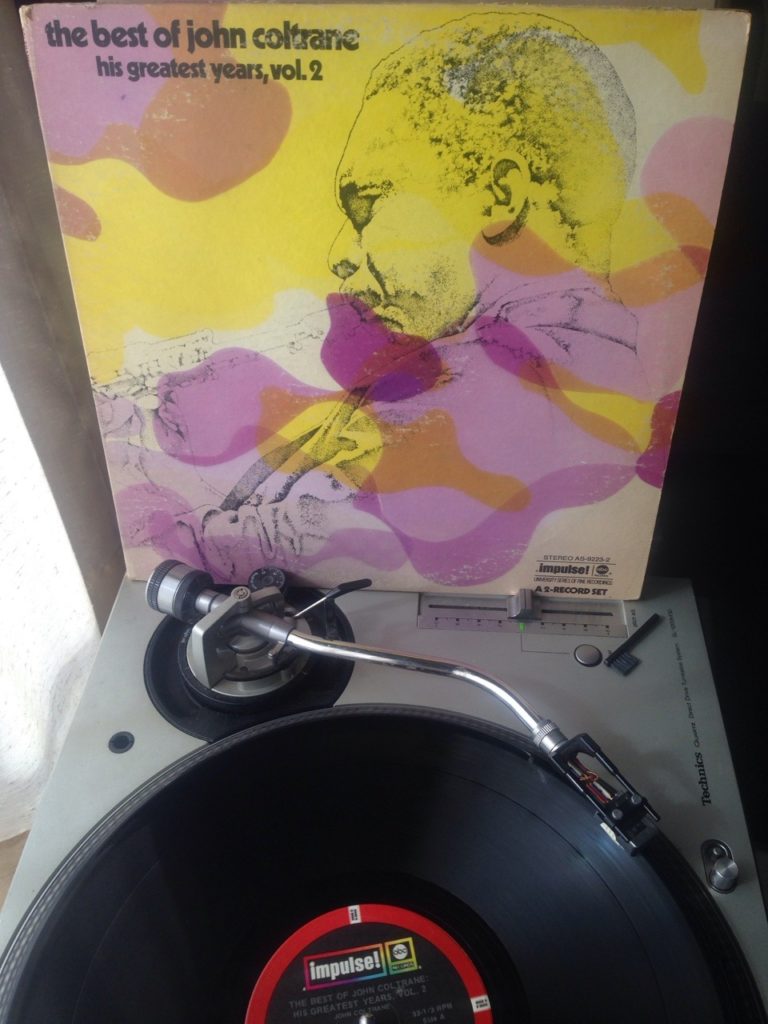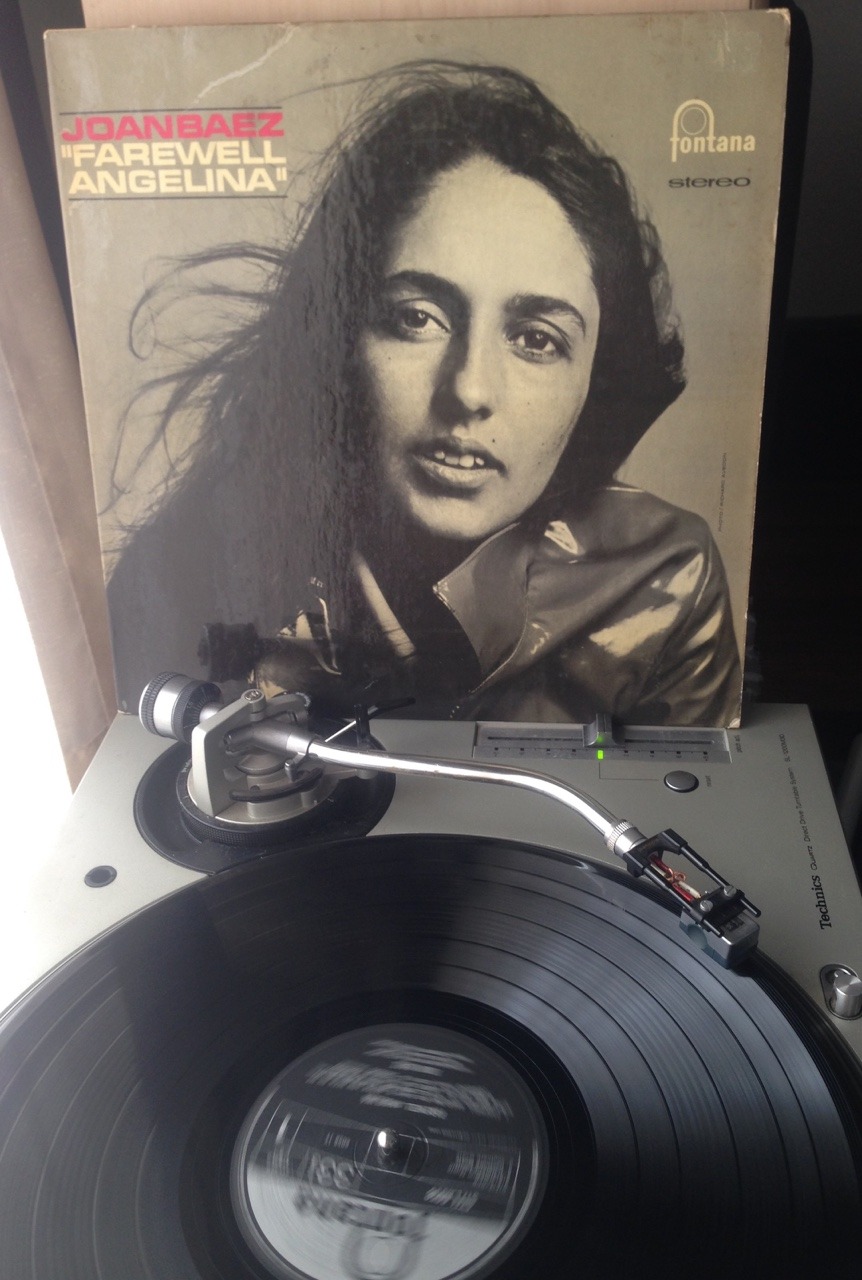Every once in a while, I’ll go back to all those records I almost bought but opted for something else instead. Band of Horses’ debut has had a firm place in the indie rock canon since its release, but for whatever reason, I kept passing over it.
Every once in a while, I’ll go back to all those records I almost bought but opted for something else instead. Band of Horses’ debut has had a firm place in the indie rock canon since its release, but for whatever reason, I kept passing over it.
Historically, I have ignored most of the Beach Boys’ pre-Pet Sounds output, regarding it as juvenile and cheap pop. However, the Endless Summer compilation I recently picked up has opened my eyes a little to the genius in potentia resting in the group (read: Brian Wilson).
In the mid 1960s, Johnny Cash, who was already an established star, signed to Columbia Records. In an effort to make as much money out of their new star, Columbia released I Walk the Line, an album filled with rerecorded versions of his biggest hits released through his old label. Cash grab though it was, there’s no denying that these are great songs are great. Big River, Folsom Prison Blues, Hey Porter, I Walk the Line…half of these songs were on the career spanning “Legend of Johnny Cash” released after his death.
There are musicians, and there are classics; artists whose work endures for generations.
And then, there are icons. Legends. Those irreplaceable, indelible few who achieve true immortality. Those peerless masters whose legacy is undebatable.
And above all these icons sits Johnny Cash.
The thing about the Beatles’ breakup is that it didn’t mean the end of music from the four men who called themselves the Beatles. In fact, quite the opposite. In 1970 alone, each member released a solo album (as well as the problematic Let It Be). Ringo debuted in March with a collection of standards (Sentimental Journey). Then in May, Paul released a ramshackle collection of half-finished songs (McCartney). In the end of November, George released a three disc opus chronicling all of the (absolutely incredible) songs Lennon/McCartney turned down for Beatles records (All Things Must Pass). Everyone waited on John, who at this point seemed like the true genius of the group (untrue, but we’ll get to that).
Two weeks after George, John and Yoko released two separate albums with nearly identical covers recorded in the same recording session, both called Plastic Ono Band. Yoko’s was an obtuse amalgam of music concrète and free jazz (Ornette Coleman guest stars!), which would have been incredibly off putting for those who bought John’s record, which against all odds, featured some of his most straightforward songwriting. Sonically, the performances follow his bluesier contributions to White and Let It Be. These songs tap the roots of rock and roll tradition, intentionally stripped to their barest bones. A few doubled vocal tracks and sound effects are scattered about the playlist, but the production is the most raw Lennon has been since Ed Sullivan.
And speaking of raw, this record was recorded after Yoko introduced John to primal scream therapy, which he had used to process the loss of his mother as a child and his abandonment issues from never knowing his father. The lyrics reflect this with almost painful clarity (most specifically on the opener “Mother”), while the literal practice of primally screaming is used in some of the tracks. As such, John never recorded anything as visceral as “Well Well Well,” which includes a screamed middle section. The single most vitriolic thing he ever sang is in the climax of “God,” where he sings loudly, “I don’t believe in Beatles!” Pause for the sting to hit. “I just believe in me/Yoko and me.” Ouch. And Ringo is right there, man! (he drummed on the whole album. And All Things Must Pass. Everybody still loved Ringo). But for all its venom, the album has some tenderness to it–Look At Me is maybe his best love song ever.
While John Lennon/Plastic Ono Band is an incredible statement from an incredible artist, it’s hard to use it to support Lennon’s superiority. Some argue that this is the finest Beatles solo ever. They’re wrong. That honor goes to either All Things Must Pass or Paul’s Ram, but Plastic Ono Band is undisputedly in third. It would have been interesting to see these songs with some of George’s lead lines, and who knows if Paul would have made them sweeter or pushed them into even rougher territory (remember: Paul was the roughest rocker of the bunch. See: Helter Skelter, Oh! Darling, his guitar solos in The End and Taxman and scats in Hey Jude). But as it is said, it does not do to dwell on dreams.

In 1967, after playing with some of jazz’s greatest pioneers (Miles Davis, Theolonious Monk, Dizzy Gillespie, to name a few) and becoming one himself with hard bop and free jazz, John Coltrane suddenly succumbed to the liver cancer he had kept secret from all but his closest friends, leaving the jazz community in shock. Continue reading
I acquired this record one day when my dad let me pick through his collection. I had overlooked this one, and he handed it to me as if I should not have done that. And for whatever reason (the many skips on track one perhaps) this is my first listen through it.
At some point, someone decided that what unassuming folk songstress Joan Baez needed was a big budget double album. While Joan moved further and further from the bare recordings of her debut with each subsequent release, Blessed Are… is a massive affair. Most of the songs have about a dozen people involved, and many of the songs have pushed past the boundary of folk straight into country western.
I’ve decided to blow through these next few Joan Baez records so I can move on to records I’m more excited to listen to (John Coltrane, Johnny Cash, Joy Division…)

After Joan Baez/5, I expected this record to continue the downward trend of her discography. After all, half of the songs are Bob Dylan covers, so clearly she’s just using her friendship with him to further her own career, right? Well…no.